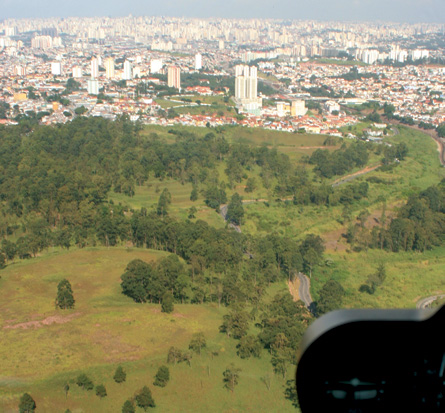Take a tortuous taxi ride through Sao Paulo's traffic-clogged streets and you realise why helicopters are such a popular method of travel for the city's time-poor, ultra-rich business leaders. Every rush hour, as the roads slow to gridlock, the only way is up, as a procession of corporate shuttles carry Brazil's masters of the universe between villas and the downtown towers of the country's financial hub.
The helicopter market in Brazil has been growing 12% a year, thanks to demand for VIP transport in Sao Paulo and Rio de Janeiro, as well as a booming offshore oil sector. But the fixed-wing fleet has also been expanding by a consistent 6-8%, says business aviation association ABAG. "The drivers are a strong economy with companies having increased purchasing power, and the need to move rapidly in a country of continental dimensions," says executive vice-president Ricardo Nogueira. Figures from Flightglobal Ascend show the Brazilian fleet grew from 577 to 680 business jets between 2010 and 2011, and after four months of this year were nudging 700.
 |
|---|
| Ana Paula Hirama Clear up here: Sao Paulo as viewed from a helicopter |
Small jets predominate: there are 101 Brazilian-built Embraer Phenom 100s and 300s - with 29 joining the fleet in the past two years - and 115 Bombardier Learjets. There have also been additions of Bombardier Global Express and Gulfstream 550 aircraft.
The failure of Brazil's infrastructure to keep pace with its economic development has been to the advantage of its business aviation sector. While the country's airline sector has been prospering, airports, including the biggest - Sao Paulo's Guarulhos - are overcrowded. A congested two-lane highway is the main link between Sao Paulo and Rio and there are few railways or metros. For those who can afford it, business aviation is perfect way of getting from A to B in the world's fifth-largest nation.
Not that the industry has it all its own way. "The biggest problem we are experiencing is the infrastructure in the airports," says Nogueira. Although the government has been working on improving things following pressure from the aviation community, there are few fixed-base operations and access to slots and airspace is restricted at the big airports, he says. It is the main brake on an sector that looks set to keep pace with the expanding Brazilian economy.
Source: Flight International























